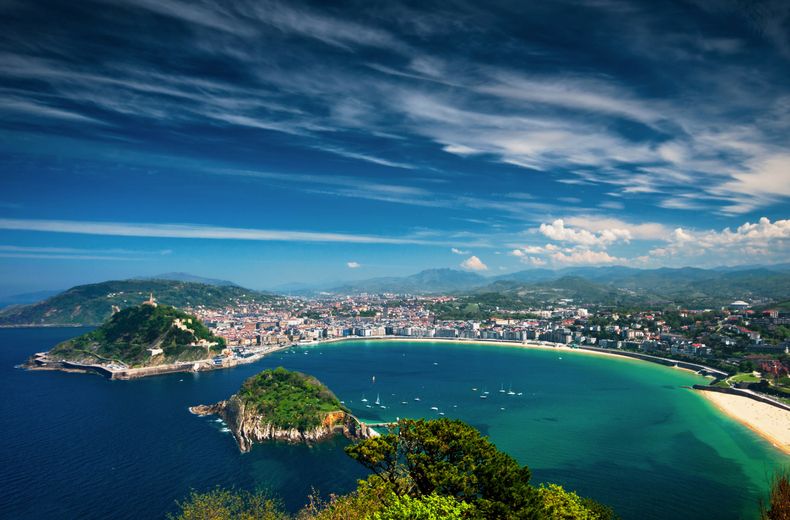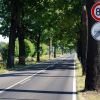Driving to Spain is probably a lot easier than you think, and offers up some great opportunities for adventure along the way.
Here’s our essential guide to everything you need to know if you’re driving from the UK to Spain, from what to pack to which routes to take.
Do I need European breakdown cover?
If you’re planning on driving to Spain — or anywhere in Europe outside the UK — the first thing you should do is make sure you have European breakdown cover for your entire journey.
The RAC has some great value European breakdown cover options that offer comprehensive cover if you break down, including roadside assistance and a 24/7 English-speaking helpline.
It's also worth looking at our dedicated advice on what to do if you break down in Spain.

Instant cover available
• 24/7 rescue at the roadside
• Help to get home if your vehicle can't be fixed
• 5 star Defaqto rated cover

What should I prepare for the drive to Spain?

When heading on any road trip, it’s essential that you’re prepared.
The most important thing to do is to check your car is up to the journey.
Before heading off on any long journey it’s always a good idea to carry out some quick checks that you can do at home to make sure your car is good to go.
It’s also a good idea to take along anything you think you might need during the journey.
That’s not to say you can’t pick up any forgotten essentials on the way, but you don’t want to be worrying about where to find things if you’re outside your comfort zone.
Of course, be sure to take along all the food and drink options to keep you and your passengers hydrated and happy through the journey.
Both France and Spain are big countries with changeable conditions, so make sure you pack clothes in the car for every weather eventuality, while toll roads en route mean you’ll need to keep loose change handy in the car.
For drivers heading through both France and Spain there are other specific things you’ll need to bring with you.
These include hi-vis vests, warning triangles, and spare bulbs, among other legal requirements.
RAC’s top tips for driving in France has all the information you’ll need about the French requirements, while you can buy a handy RAC Driving in France kit which will save you time and money and help you keep on the right side of the French law.
The RAC’s Driving in Spain guide has essential advice about what to take for the Spanish leg of your journey, so make sure you give it a read well before you set off on your adventure.
- How to pack for a road trip
- Did you know we offer temporary car insurance with an add-on for driving in Europe?
- Driving abroad? Be prepared, take out European breakdown cover
What are the driving laws in France and Spain?
Driving in different countries means driving under a whole new set of laws and regulations, and it’s critical that you get to grips with the differences between UK, French and Spanish road laws before you set off.
Not only will this keep you the right side of the police, or even the policía, this will help keep you and your passengers safe during your journey.
When driving in a foreign country, it’s always important to plan your journey ahead to make sure you are prepared for any toll roads or bridges that you might come across.
You should also prepare for any country-specific requirements, such as France’s compulsory Crit’Air clean air stickers.
To help you get your head around all the differences, the RAC has compiled a handy guide for Driving in France and an equally handy guide for Driving in Spain which are both essential reading before you head off on your adventure south.
Buy a European Driving Kit from £25.99
Don’t get stung with fines abroad for not having a European Driving Kit
How do I drive from the UK to Spain?
Crossing the Channel (Dover/Folkestone — Calais)
The first thing you need to do if you’re driving to Spain is to get across the English Channel to Calais.
There are two ways to get to Calais with your car: you can either take the ferry from Dover or the Channel Tunnel from Folkestone.
While the ferry is the traditional choice, for many the speed of the Channel Tunnel (35 minutes compared to around 90 minutes for a ferry crossing) will be the determining factor.
For everything you need to know about the “Chunnel”, check out the RAC’s complete guide to taking a car through the Channel Tunnel.
Once you’re in Calais, there is no bad way to drive to Spain because whichever route you choose you’ll encounter some stunning scenery, lots of opportunities to take in the local culture.
But to help you out, we’ve put together a couple of options to get you started.
The Quickest Route (Calais – Rouen – Bordeaux – San Sebastian)

If you’re looking for the most direct route from A to B, the drive to Spain can be done in less than a day.
However, that’s not to say that you can’t stop off along the way and make the most of some great towns and cities.
From Calais, take the A16/A28 to Rouen, the medieval capital of Normandy and home to one of France’s most famous cathedrals, which dates back the 12th century.
Continue down the A28 to Le Mans, the spiritual home of motor racing, before heading onto Tours.
The university town doubles as the gateway to the surrounding Loire Valley, one of France’s most spectacular regions and the producer of some excellent local vintages.
From Tours, join the A10 and follow it south, taking in the beautiful Poitiers and the Acropolis-esque Angoulême on your way to Bordeaux.
The wine capital of the world, Bordeaux is home to one of Europe’s biggest 18th century architectural urban centres, making it a great place to wander round on a sunny afternoon.
Head south from Bordeaux on the A63 to Biarritz, the elegant resort town on the Basque coast that has been hosting European royalty for centuries.
Once you’ve had your fill of surfing or rugby, continue on the A63 across the border to San Sebastian, with its upscale streets and famous curved bay.
The Scenic Route (Calais – Paris – Clermont Ferrand – Barcelona)
For a more involved route down to Spain, head down through the centre of France and take in some of the country’s best sights before hitting Barcelona.
Out of Calais, take the A16 south and dive straight into the whirlwind adventure that is Paris.
Once you’ve taken in all the sights of the City of Lights, head south on the A10 to Orleans, saved by Joan of Arc back in 1429 and still worth a visit today.
From there, take the A71 south and take in Vierzon and the idyllic Bourges before hitting Clermont Ferrand.
Clermont Ferrand is located in the centre of the Massif Central and is famous for the chain of extinct volcanoes that ring the city.
It’s a great base to explore the surrounding mountainous countryside, which is dotted with picturesque market towns and excellent scenery.
From here, take the A75 south until you hit Béziers then head south to Perpignan on the A9. Soak up the last drops of France in Perpignan before heading across the border and taking the AP-7 into Barcelona, a never-ending party of a city on the shores of the Mediterranean.

RAC sale – up to 33% off*
• Roadside cover from £5.29 a month†
• We get to most breakdowns in 60 mins or less
• Our patrols fix 4/5 breakdowns on the spot









